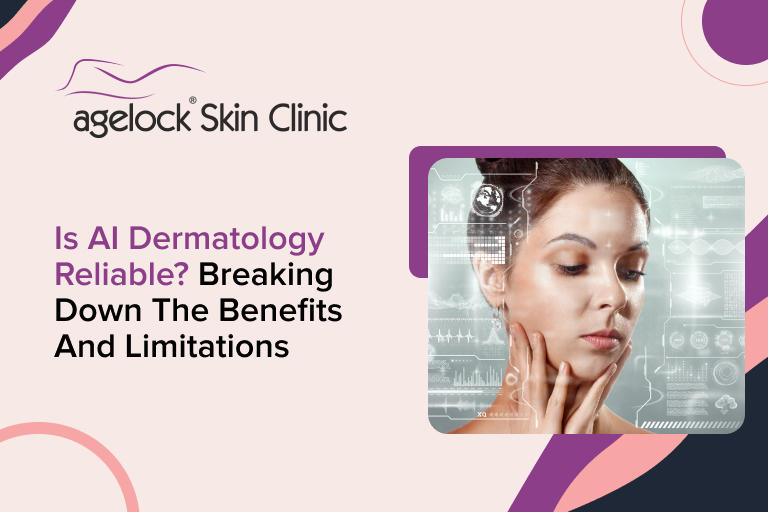Collagen is a popular trend in the beauty and health market, and it’s no surprise why. It’s essential for keeping your skin elastic and youthful. But did you know it’s also great for your hair? This blog is perfect for anyone interested in learning how collagen promotes hair health, growth, and texture. We’ll explore the link between collagen and hair, answering common questions and providing valuable insights. Discover the secret to healthier, stronger hair with collagen.
What is Collagen?
It is now necessary to define what collagen is before discussing how the compound is befitting to hair. Additionally, it is noteworthy that the main protein in the human body is collagen. It is present in the skin, muscles, and bones as well as connective tissues helping in providing structural support. Many people associate collagen with products that help to fight facial skin ageing, which is true. Why? It is due to its function in providing skin firmness, but hair needs it as well.
How Collagen Benefits Hair
Now we will break down the various ways collagen can improve your hair health:
a) Promotes Hair Growth
One beauty-related advantage associated with the intake of collagen for hair is that it stimulates hair growth. Collagen includes amino acids and they are also the precursors of keratin, a protein that is found in your hair.
- Reduces Hair Breakage: Robust hair reduces breakages; hence, your hair gets longer.
- Provides Essential Nutrients: With collagen, there are amino acids that are capable of nourishing the hair roots.
- Strengthens the Hair Shaft: Through the promotion of the production of keratin, collagen helps develop strong hair strands.
Taking collagen or using it on the hair can help with the style of having healthy hair, which also discourages hair thinning.
b) Improves Hair Strength
Collagen helps in improving the strength of the hair and indeed strong is healthy hair. Damaged hair can hardly grow long as it is characterised by breakage and split ends especially in cases when hair is brittle and weak.
- Prevents Split Ends: Collagen messages keep hair ends strong and do not allow split ends to occur hence hair grows longer and becomes healthier.
- Supports Hair Structure: Collagen is the protein that adds some sort of reinforcement to the hair fibres internally, thus making them less susceptible to breakage.
Healthy hair at the hair shaft bottom is always stronger and healthier looking than damaged hair at the tips.
c) Adds Shine and Smoothness
Collagen isn’t just a structural protein; it can make the hair structural and become smoother and shinier. If your hair looks dull or lacks softness, collagen may be the solution.
- Improves Elasticity: With better elasticity, hair becomes smoother and easier to style.
- Boosts Hair Moisture: Collagen helps retain moisture in your scalp, reducing dryness and adding shine.
- Restores Damaged Hair: Through the proper utilisation of Collagen, one can mend damaged strands, making the texture and appearance a lot better.
Healthy hair stands for a shiny and smooth look. This is when it is unwrapped from any product that is designed to be included in hair styling.
Collagen and Scalp Health
A healthy scalp is the foundation for strong hair, and collagen helps improve scalp health in the following ways:
a) Hydrates the Scalp
Dry scalps raise various problems ranging from itching to dandruff, and collagen is vital to keeping scalps moist.
- Soothes Irritation: When applied to the scalp, collagen will help reduce inflammation and scaling.
- Retains moisture: Collagen also assists in maintaining the moisture and sebum on the head, whereby sebum acts as a natural conditioner.
Therefore, proper hydration of the scalp creates a favourable condition that promotes hair growth and, hence, healthy hair.
b) Reduces Oxidative Stress
Oxidative stress is a situation whereby free radicals – unstable molecules harm cells and tissues including the skin and scalp cells. This can eventually contribute to hairline deterioration and poor hair quality.
- Acts as an Antioxidant: Collagen is an antioxidant that fights off free radicals with the help of its properties.
- Protects Hair Follicles: It helps to avoid such aspects as oxidative stress, which can lead to harm to hair follicles by assisting with collagen.
Along with this, collagen plays an essential role in the overall health of the hair thinning and loss.
How to Add Collagen to Your Hair Care Routine
Now, you must be wondering how you can make collagen a part of your regular hair care regimen. Fortunately, there is the following list of several simple strategies that will help you begin getting more collagen:
a) Collagen Supplements
Supplements are one of the easiest and most popular natural methods of getting a proper amount of collagen. Most supplements containing collagen are in powders, capsules, and gummies depending on the user’s preference.
- Capsules: In case you wish to take a quick daily supplement, capsules of collagen would be ideal.
- Gummies: If you are not a fan of capsules, then you can also get collagen gummies, which are more like sweets.
- Powder Supplements: These can be incorporated into your early morning coffee, your preferred juice, or just in water.
Supplements are probably the easiest since they allow you to meet your collagen intake for the entire day in one go.
b) Collagen-Rich Foods
You can also supplement your body with collagen through the foods that you consume in your diet. They are naturally endowed with collagen or foods that stimulate collagen production.
- Citrus Fruits: These contain vitamin C, which assists in the formation of collagen.
- Fish and Chicken: These protein-containing food items contain amino acids that your body can use to produce collagen.
- Bone Broth: As indicated, a potassium-rich food loaded with collagen can enhance hair nutrition value.
If collagen-rich foods can work wonders on one’s hair, then the skin and nails will also stand to benefit.
c) Topical Collagen Treatments
Other external products include applying topical products that contain collagen to improve the status of your hair.
- Collagen-infused Shampoos and Conditioners: These products allow collagen to be delivered to your hair and scalp.
- Leave-in Treatments: The collagen leave-in spray or serum will assist when it comes to moisturise your hair during the day.
- Hair Masks: The application of a collagen hair mask on hair once a week will penetrate and nourish the hair shafts and repair damaged parts of the hair.
Treatments are especially useful when you look to address specific issues that affect the hair such as dryness and damaged ends.
Final Thoughts
Collagen is not only useful in skin care products, but it is also vital to strong, healthy hair that shines. Incorporating collagen in your hair, through supplementation, food, or topical application, can be beneficial in many ways as it helps with the growth of our hair and the health of the scalp. Through the internal supply of everything that is needed for hair growth, collagen makes sure that in addition to growth, it can stand the normal day-to-day wear and tears.
Frequently asked question
Yes, collagen may promote hair growth by supporting hair structure and strength.
Collagen cannot stop grey hair, but it may improve overall hair health.
Yes, collagen treatments can enhance hair health and improve its appearance.
Both are beneficial; biotin supports growth while collagen strengthens hair.
Collagen is generally safe, but some may experience digestive discomfort or allergic reactions.
Type I and III collagen are typically best for promoting hair health.
Excessive collagen intake is rare but could potentially lead to imbalances.
Bone broth, chicken skin, fish, and collagen-rich cuts of meat are high in collagen.
People with specific allergies or dietary restrictions should consult a doctor before taking collagen.
Collagen itself does not cause facial hair growth; hormonal factors are usually responsible.








